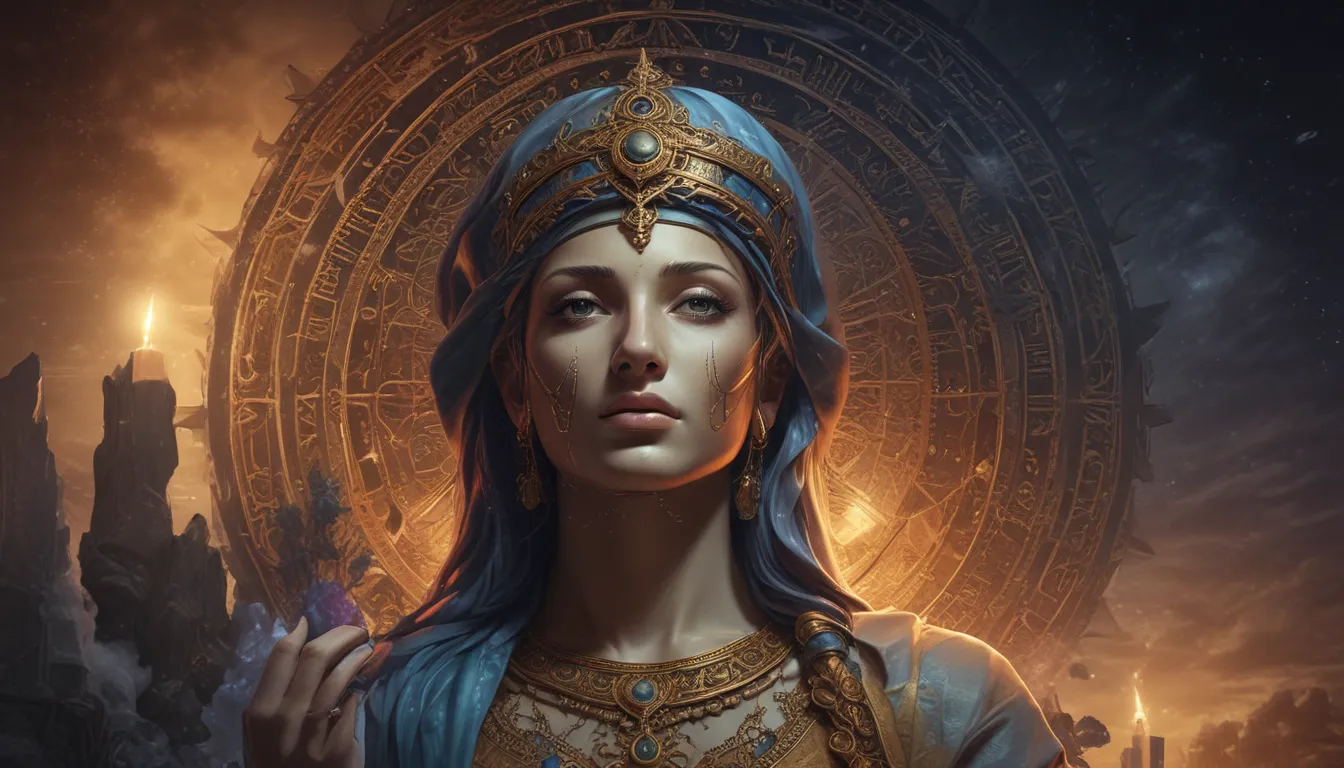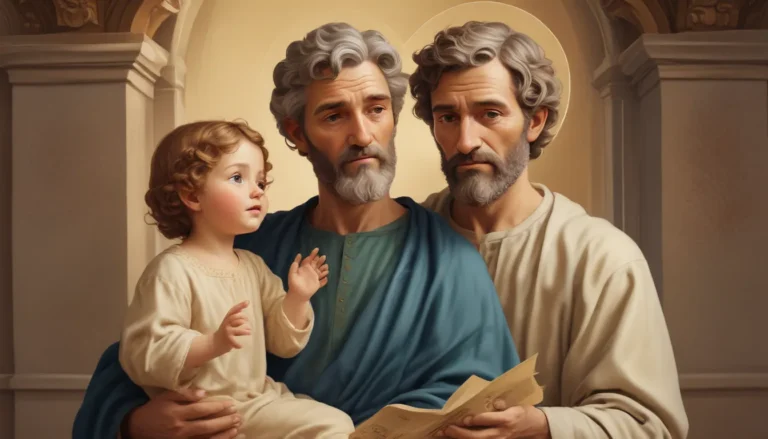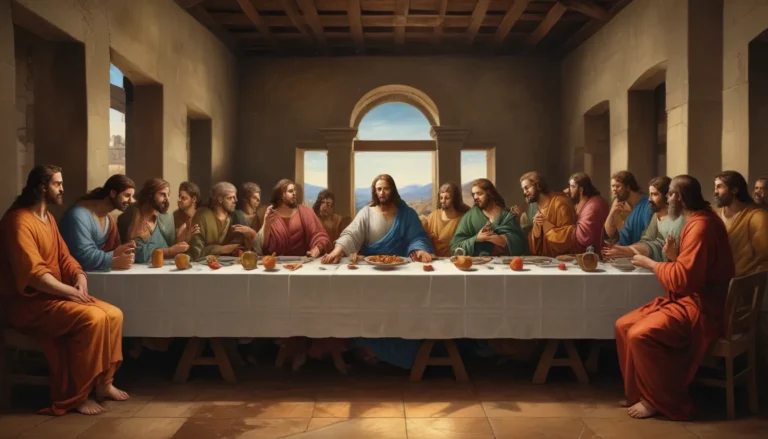The images in our articles may not match the content exactly. They are used to grab your attention, not to show the exact details in the text. The images complement the text but do not replace it.
Monotheism, the profound belief in the existence of a single, all-powerful deity, has shaped the spiritual and cultural landscapes of many of the world’s major religions. From the monotheistic principles that underpin religious doctrines to the ways in which monotheism has influenced ethical frameworks and artistic expressions, the impact of monotheism on human history is profound and multifaceted.
Understanding Monotheism: A Singular Deity
Monotheism, derived from the Greek words “monos” (single) and “theos” (god), is the belief system that asserts the existence of only one supreme being. This concept stands in contrast to polytheism, which acknowledges multiple deities. Monotheism is a central tenet of major world religions such as Christianity, Islam, and Judaism, collectively encompassing billions of adherents worldwide. These faiths are rooted in the monotheistic belief in a singular, transcendent deity, fostering a sense of shared spiritual heritage and ethical values among monotheistic communities.
The Historical and Cultural Significance of Monotheism
Throughout history, monotheistic beliefs have profoundly influenced societies, governance, and the arts. Monotheism has been a catalyst for social change, shaping legal systems, artistic expressions, and ethical frameworks. The emergence and spread of monotheism have left an indelible mark on human civilization, influencing literature, music, architecture, and governance.
The Personal Connection with the Divine in Monotheism
Monotheism promotes the idea of a personal relationship with the divine, inspiring believers to cultivate a sense of intimacy and devotion in their spiritual practices. Monotheistic traditions emphasize individual communion with the singular deity, guiding the moral conduct and ethical perspectives of adherents.
Philosophical Inquiries and Theological Discourses in Monotheism
The concept of a singular, omnipotent deity has sparked deep philosophical contemplation and theological discourse across civilizations. Scholars and thinkers have engaged in discussions about the nature of the divine, the problem of evil, and the purpose of human existence within the framework of monotheistic belief systems.
The Impact of Monotheism on Ethics and Morality
Monotheistic traditions have provided ethical guidelines and moral precepts that inform the conduct and interpersonal relationships of their adherents. Concepts of justice, compassion, and righteousness are rooted in monotheistic teachings, guiding individuals and communities in their pursuit of virtuous living and social responsibility.
Artistic Expressions and Monotheism
The reverence for the divine in monotheism has been a source of artistic inspiration, fueling the creation of awe-inspiring religious art, architecture, music, and literature. The artistic legacy of monotheism reflects the profound spiritual devotion and creative ingenuity of human expression.
Rituals, Ceremonies, and Worship in Monotheism
Monotheistic faiths have cultivated rich traditions of worship, prayer, and ceremonial practices that reflect the reverence for the singular divine presence. These rituals serve as communal expressions of faith, fostering a sense of spiritual unity and collective devotion among believers.
Spiritual Resilience and Perseverance in Monotheism
Monotheistic communities have demonstrated remarkable resilience in the face of adversity, drawing strength from their faith and enduring commitment to the singular divine presence. This legacy of spiritual fortitude has been a source of inspiration and solidarity within monotheistic traditions.
Interfaith Dialogue and Cooperation in Monotheism
Monotheistic traditions have played a crucial role in fostering interfaith dialogue, understanding, and collaboration in an interconnected world. Initiatives promoting mutual respect, peaceful coexistence, and shared values among diverse religious communities contribute to global harmony and cooperation.
Divine Justice, Moral Accountability, and Monotheism
Central to monotheistic beliefs is the notion of divine justice and moral accountability, guiding ethical conduct and the pursuit of righteousness. The ethical frameworks and moral consciousness of monotheistic adherents are shaped by the concept of a singular, just deity.
Spiritual Transformation and Redemption in Monotheism
Monotheistic traditions abound with narratives of spiritual transformation, redemption, and the quest for transcendence. These stories convey themes of personal growth, moral renewal, and the enduring hope for spiritual fulfillment within monotheistic faith.
The Architecture and Music of Monotheism
The architectural expressions of monotheistic faiths, from grand cathedrals to ornate mosques and synagogues, reflect the reverence for the divine and the spiritual significance of sacred spaces. The rich tradition of devotional music and hymnody in monotheism expresses the spiritual yearning and praise of believers across diverse cultural landscapes.
In conclusion, the concept of monotheism has profoundly shaped the religious, cultural, and ethical tapestry of human civilization. By exploring the fundamental principles and historical significance of monotheism, we gain a deeper understanding of its enduring relevance and the profound impact it has had on human civilization. The legacy of monotheism continues to inspire spiritual resilience, interfaith dialogue, and the pursuit of ethical living guided by the belief in a singular, all-powerful deity. Join us in unraveling the mysteries of monotheism and appreciating its rich heritage.
FAQs
What are the main monotheistic religions?
The main monotheistic religions include Judaism, Christianity, and Islam, each centered on the belief in one God with unique interpretations and rituals.
How does monotheism differ from polytheism?
Monotheism involves the belief in a single, all-powerful deity, while polytheism entails worshiping multiple gods and goddesses, shaping theological and ritual practices accordingly.
We strive to deliver trustworthy and engaging content, with each fact on our site contributed by real users like you. Our commitment to quality and authenticity ensures that the facts we share are not only fascinating but also credible. Trust in our dedication to providing valuable insights as you explore and learn with us.






